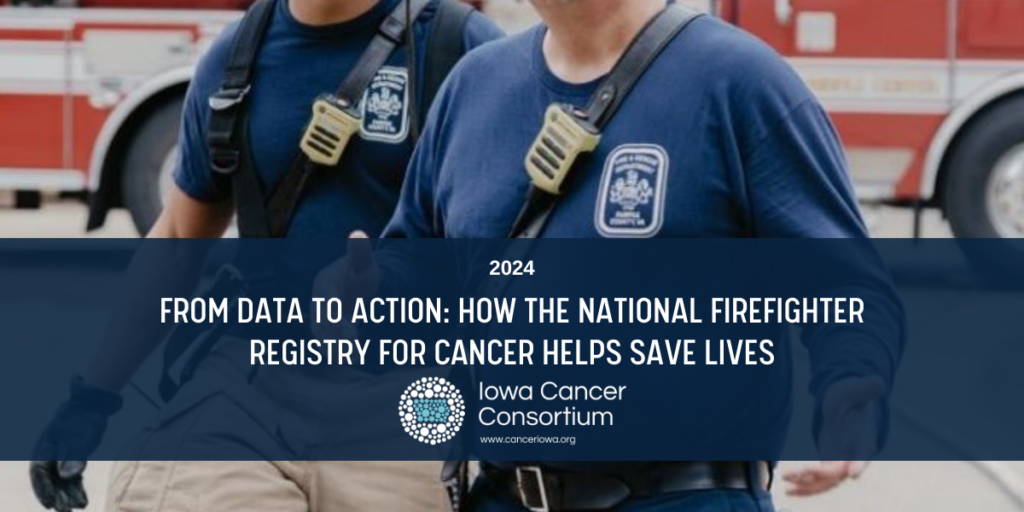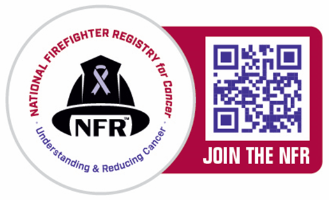From Data to Action: How the National Firefighter Registry (NFR) for Cancer Helps Save Lives

Firefighters are brave individuals in our communities who put their lives on the line to protect us from fires and other emergencies. Whether volunteer or career, firefighters and their families dedicate their lives to service, especially in rural communities. To help understand and address the unique health risks associated with smoke, chemical, and hazardous materials exposure, the National Firefighter Registry (NFR) was created.
What is the National Firefighter Registry?
The National Firefighter Registry for Cancer is the largest existing effort to understand and reduce cancer risk among firefighters. It aims to gather data on health issues that might be linked to firefighting activities, such as cancer and respiratory problems. This information can help researchers, policymakers, and health professionals develop better safety standards, treatment options, and preventive measures for firefighters.
Why is the Registry Important?
- Health Tracking: By keeping track of the health of firefighters throughout their lives, the NFR can identify patterns and trends related to illnesses that may arise from their work. This can lead to better understanding and management of health risks.
- Research Opportunities: The data collected can be used for research, helping scientists and health experts study the long-term effects of firefighting on health. This research can ultimately lead to improved protective measures and equipment.
- Support for Firefighters: The registry can help advocate for better health resources and support systems for firefighters, ensuring they receive the care they need if they face health issues related to their job.
Why is the Registry Important in Iowa?
According to the U.S. Fire Administration, there are 738 registered fire departments in Iowa. Almost 96% of those departments are entirely or mostly staffed by volunteers. Volunteer firefighters often lack access to preventative measures that can help reduce cancer risk, like having a second set of personal protective equipment (PPE) or a facility to clean equipment separate from their house. Gathering data from Iowa’s volunteer – and career – firefighters will be instrumental in learning more and putting safer processes into practice for all firefighters.
How Does It Work?
Firefighters can voluntarily register for the NFR. All firefighters – paid or volunteer, active or retired, with or without cancer, and no matter their length of service – can join the National Firefighter Registry for Cancer.
The NFR for Cancer needs firefighters who do not have cancer to enroll, in addition to those who do have cancer, because their information will allow researchers to study why some firefighters develop cancer and others do not. Firefighters who have been underrepresented in research are a priority, including female firefighters, firefighters from racial and ethnic minority groups, volunteer firefighters, wildland firefighters, and other specialty areas like fire investigators and fire instructors.
Once registered, firefighters may be asked to provide information about their health, job history, and exposure to various hazards while on duty. This information is kept confidential and is used solely for research and public health purposes.
How to Get Involved
If you’re a firefighter or know someone who is, consider participating in the NFR. Here’s how:
- Visit the NFR Website: The National Firefighter Registry has an official website where you can find more information about the registry and how to sign up. https://www.cdc.gov/niosh/firefighters/registry.html
- Spread the Word: Share information about the registry with firefighters in your network and encourage them to participate. The more data collected, the more effective the research can be.
- Stay Informed: Keep an eye on updates from the NFR and research findings that may impact firefighter health and safety.
- Learn More: Learn more about firefighting and cancer risks from the Iowa Cancer Consortium’s 2024 Spring Meeting session, “Firefighting” as a Carcinogen (watch).

